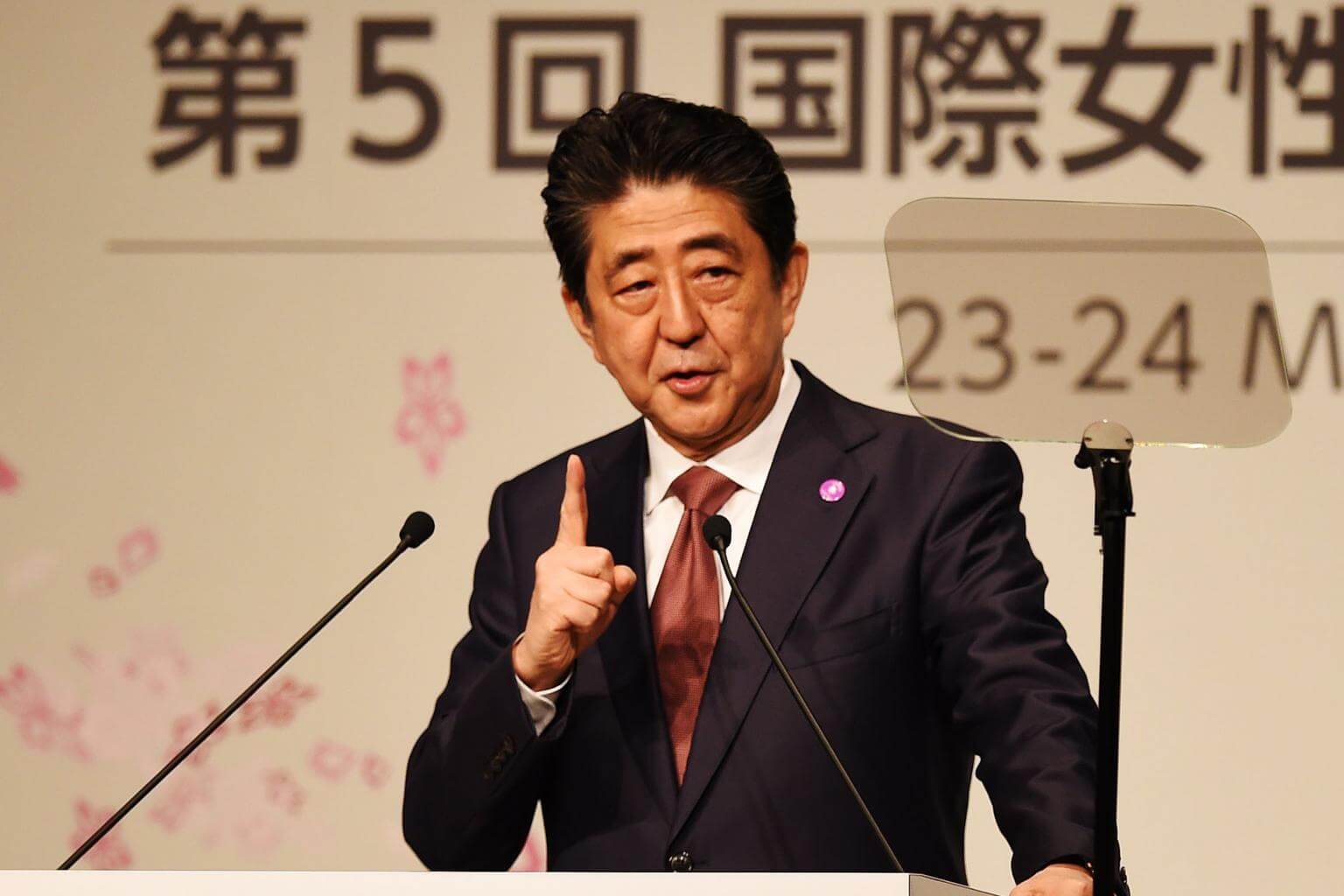Japan PM Shinzo Abe touts strides in gender equality despite poor global rankings
Sign up now: Get insights on Asia's fast-moving developments

"Japan's economy has grown over 10 per cent in the last six years, and the main engine is Womenomics," said Japanese Prime Minister Shinzo Abe.
PHOTO: AFP
Follow topic:
TOKYO - Japanese Prime Minister Shinzo Abe has highlighted the vast strides that have been made in female empowerment since taking office in December 2012 as he tried to shift the narrative from the huge elephant in the room: Japan's woeful track record in gender equality.
Despite his vow before the United Nations in 2013 to "build a society where women can shine", Japan still has some way to go, as seen from its lowly 110th placing in the World Economic Forum's Global Gender Gap index of 149 nations last year.
It was also 165th out of 193 countries in female parliamentary representation, according to a survey done in January. Mr Abe also named just one female minister to his 19-member Cabinet in October last year.
Still, the PM told the Women 20 (W-20) Summit on Saturday (March 23), a prelude to the Group of 20 (G-20) summit in Osaka in June, that the active female employment rate has risen by 8.9 percentage points in six years, with more than 2.8 million women having joined - or rejoined - the workforce.
"Japan's economy has grown over 10 per cent in the last six years, and the main engine is Womenomics," he said, adding that the attitudinal shift was a result for his push for drastic reforms in childcare and working style.
He did not touch on the country's dire global rankings in his speech at the start of the two-day summit, which had among its speakers Nobel Laureate Malala Yousafzai, 21, a Pakistani activist for female education, and former Chilean President Michelle Bachelet, now the UN High Commissioner for Human Rights.
But Mr Masahiko Uotani, chief executive of cosmetics giant Shiseido, later said: "We have to consider the current situation with a sense of realism. According to the Gender Gap Index, Japan is ranked 110th in the world despite being the third largest world economy with a highly developed consumer society. To me, this is completely unacceptable."
"Gender diversity is one of the most important strategic challenges for Japan to sustain economic and social economic vitality.
"We must have a sense of urgency. We business leaders in Japan must commit to proactively changing this terrible situation without just relying on the government legislation to improve the working conditions for women and their families."
Shiseido, which reached its target of appointing 30 per cent female managers in Japan in 2017, has set a new goal of achieving 40 per cent by next year.
Mr Uotani said that nearly half of its board of directors is comprised of women, which "helps our discussions be very vibrant and therefore enrich our corporate governance".
Osaka University President Shojiro Nishio said he too is aware of the "harsh reality of the status, diversity and inclusion of women in Japan".
The university tops the league table of Japanese national universities in terms of the number of female students and academic staff, he said, stressing that societal change can only be achieved with disruptive reform and innovation, and an inclusive work environment "where there is respect for individuality of each employee to allow them to maximise their potential".
Mr Abe gave credit to Chile's Dr Bachelet for resuscitating the revised Trans-Pacific Partnership trade deal that had seemed dead in the water after America's withdrawal: "With a sense of self-awareness, I must confess that during times of shocking incidents, men could be so stunned that they are belated in responding. But you were different."
The Premier also pledged to help provide quality education for at least four million girls in developing countries through overseas development assistance programmes by next year.
Mr Abe cited a World Bank report that said female lifetime income can increase by up to US$30 trillion if all girls around the world can secure 12 years of education, adding that he will take up the cause as a priority at the G-20 summit.
Ms Yousafzai said she was grateful for Mr Abe's pledge: "Today, we only see a small fraction of what young women can contribute. As technology changes the way we live, one billion girls today (in both developing and developed countries) lack the skills they need for the modern workforce.
"Many children will be working in jobs that do not yet exist, which means we must invest in girls today to ensure women can succeed in the jobs of tomorrow."

